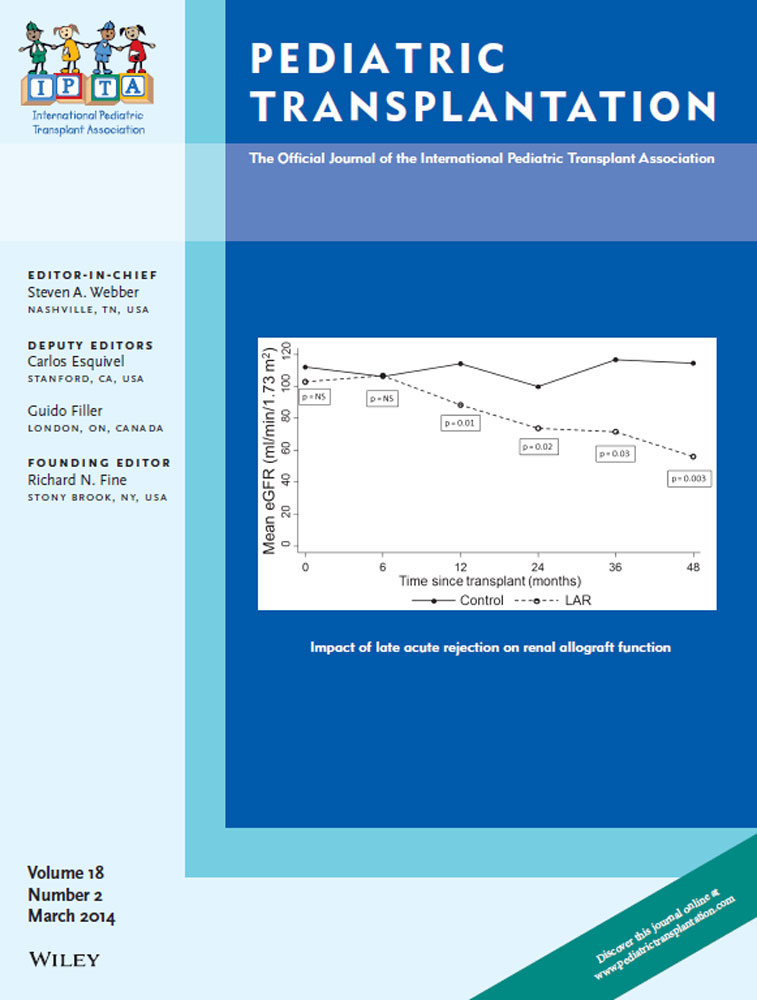Ureteral complications after renal transplant in children: Timing of presentation, and their open and endoscopic management
Abstract
We retrospectively reviewed the records of 24 consecutive patients undergoing treatment for ureteral complications after RTx in the period 2001–2012 to determine the timing of presentation of the complications, and their open or endoscopic management. Three patients (12%) had a necrosis of the transplanted ureter soon after RTx. All required open urinary diversion in a native ureter. Ten cases (42%) developed ureteral obstruction. Time of presentation was variable mainly in relation to the underlying cause. Endoscopic treatment was successful in two cases with urinary stones and open surgery in two with mid-ureteral obstruction. Six patients had VUJ stenosis, three underwent open reimplantation, whereas temporary double-J stent placement was successfully performed in the remainder. Eleven patients (46%) had VUR. It seldom presented in the first year after RTx. Endoscopic treatment was attempted in all and was successful in all the six cases without vs. only one of the five with lower urinary tract pathology (p = 0.01). Endoscopic treatment is an option in patients with VUR in the absence of lower urinary tract pathology. It is an option also for the treatment of stones and can be attempted in case of VUJ stenosis. Ureteral necrosis always requires open treatment.




